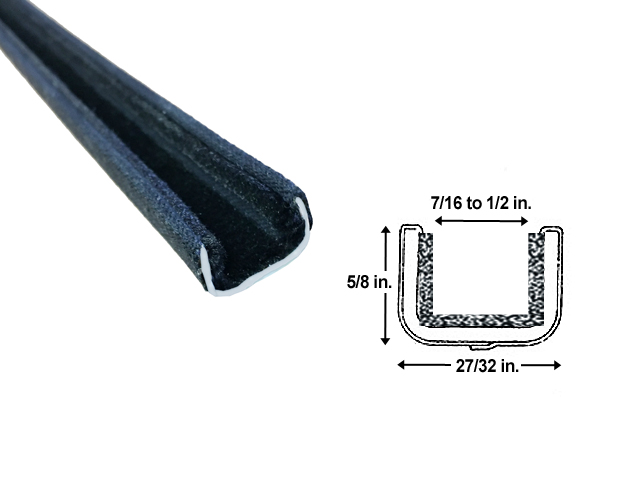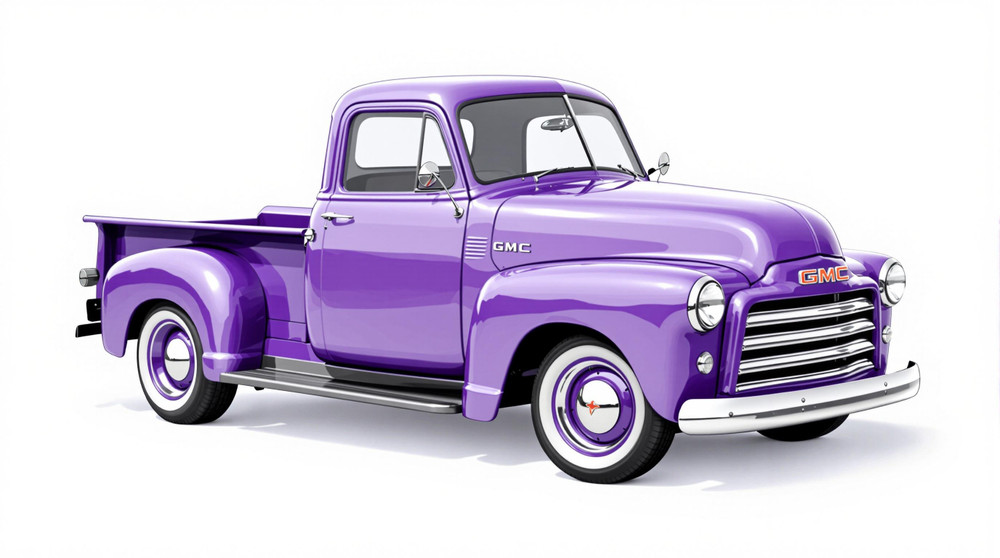Image of 1954 Gmc 150, Note: These illustrations use artistic license and may differ from actual historical models.
Performance Metrics
Fundamental Metrics
Emotional Appeal
MMP Rating
| Engine Specifications | |
|---|---|
| Engine: | Inline 6 |
| Displacement: | 235 cubic inches |
| Horsepower: | Estimated 125-140 HP |
| Torque: | 210 lb-ft |
| Compression Ratio: | Estimated 7.5:1 |
| Ignition System: | Distributor and coil |
| Cooling System: | Liquid-cooled |
| Performance Specifications | |
| 0-60 Time: | Information not available |
| 1/4 Mile Time: | Information not available |
| Top Speed: | Estimated 70-75 mph |
| Transmission and Drive | |
| Drive Type: | Rear-wheel drive |
| Transmission Type: | 3-speed manual |
| Fuel and Efficiency | |
| Fuel System Type: | Carburetor |
| MPG: | Estimated 10-15 mpg |
| Dimensions and Brakes | |
| Brakes: | Drum brakes |
| Wheelbase: | 125.25 inches |
| Weight: | Estimated 3,500 lbs |
Note: Specifications for classic cars are given to the best of our ability, considering the limited and variant data available.
Unveiling the Workhorse of the 1950s: The 1954 GMC 150
The 1954 GMC 150 is not just a vehicle; it's a rolling testament to mid-century American industriousness. Born from the bustling post-war era, this truck was GMC's answer to the nation's growing demand for robust and reliable work vehicles. As a product of General Motors, the GMC 150 emerged from a lineage of innovation and solid engineering, designed to tackle anything from farm fields to urban construction sites. A unique fact that piques interest is that this model was part of the first generation to feature GMC's iconic "bull nose" front end, a design that would become emblematic of the brand's trucks for years to come.
Design and Innovation
The 1954 GMC 150 boasted a bold, utilitarian aesthetic that was all business. Its exterior styling featured clean lines, a commanding chrome grille, and rounded fenders that exuded strength. Inside, the cabin was spartan but functional, with durable materials meant to withstand the rigors of daily labor. Technologically, it was ahead of its time, offering features like a Hydra-Matic automatic transmission – a rarity for trucks in that era. Color options ranged from basic commercial hues to more vibrant tones, with popular choices including Forester Green and Omaha Orange. The most iconic body style was the step-side bed with its external fenders and running boards, which provided both character and utility.
Historical Significance
The 1954 GMC 150 didn't just transport goods; it carried the American economy during a pivotal time of growth. It set itself apart with its rugged dependability and versatility, becoming a favorite among businesses and tradespeople. Its lasting influence can be seen in how modern trucks balance power with functionality, a concept that the GMC 150 showcased with aplomb.
Performance and Handling
Under the hood, the 1954 GMC 150 was typically powered by a robust inline-six engine, though a V8 option was available for those needing extra grunt. While top speeds and acceleration were modest by today's standards, the truck was no slouch in fulfilling its duties. The ride was firm yet manageable, with handling characteristics that instilled confidence on various terrains. Drivers could expect to hear the satisfying rumble of the engine as they navigated through their tasks, feeling connected to the machine through every turn of the wheel.
Ownership Experience
Owners of the 1954 GMC 150 used their trucks for everything from daily chores to weekend projects. Its simplicity meant that maintenance was straightforward, making it a reliable companion for those who weren't afraid to get their hands dirty. While not without its quirks, the truck's mechanical nature allowed for relatively easy repairs.
Fun Facts
The 1954 GMC 150 has its share of interesting trivia. For instance, some models were equipped with a rare "NAPCO" four-wheel-drive system, making them highly sought after by collectors. While not known for breaking speed records, these trucks have been celebrated for their endurance and longevity. Criticisms were few but often pointed at the truck's no-frills interior, though many owners saw this as a badge of honor rather than a drawback.
Collector's Information
Today, the value range for a well-preserved 1954 GMC 150 can vary greatly. With production numbers not as high as some of its competitors, surviving examples can be relatively scarce. A fully restored model could fetch anywhere from $20,000 to $40,000 or more, depending on its condition and originality. The market trend seems to show an appreciation in value, as enthusiasts are drawn to its historical charm and workhorse pedigree.
Conclusion
The 1954 GMC 150 is more than just a classic vehicle; it's a symbol of American resilience and ingenuity. Its design, performance, and versatility have cemented its place in automotive history. Whether you're a collector or an admirer of vintage trucks, the GMC 150 stands as a proud reminder of where we've been and how far we've come. In the world of classic vehicles, it continues to be a cherished icon that tells a story of strength and simplicity.
1954 Gmc 150 Catalog of Parts
 1954 GMC 150 Flexible window channel-WC 18-60Flexible window channel. Fits '50-'63 Chevrolet and GMC full-size pick-up trucks. 60 in. long. Each.
1954 GMC 150 Flexible window channel-WC 18-60Flexible window channel. Fits '50-'63 Chevrolet and GMC full-size pick-up trucks. 60 in. long. Each.Why Choose Metro?
For over 100 years, Metro Moulded Parts has been the pinnacle of quality in classic car restoration parts. Our commitment to precision and authenticity in every component ensures a perfect fit and an OEM-level appearance.
- Expert Craftsmanship & Quality: Each part is a testament to our dedication to reliability and perfection, crafted from original designs and thoroughly tested.
- Advanced Technology: We use cutting-edge techniques to create flawless, long-lasting parts that surpass others in performance.
- SuperSoft Sponge – The Ultimate Door Seal: Not only are our door seals 30% softer than competitors', but they're also guaranteed to never leak. They effectively reduce wind and road noise, enhancing your classic car's comfort and driving experience.
- Proudly American: Our parts are a product of American craftsmanship, made in the USA with a spirit of excellence and heritage.
- Unrivaled Warranty: We back our products with a 30-year industry-leading warranty, a testament to our confidence in their quality.
Join us in preserving the legacy of classic cars with parts that are crafted for perfection, not just made.

